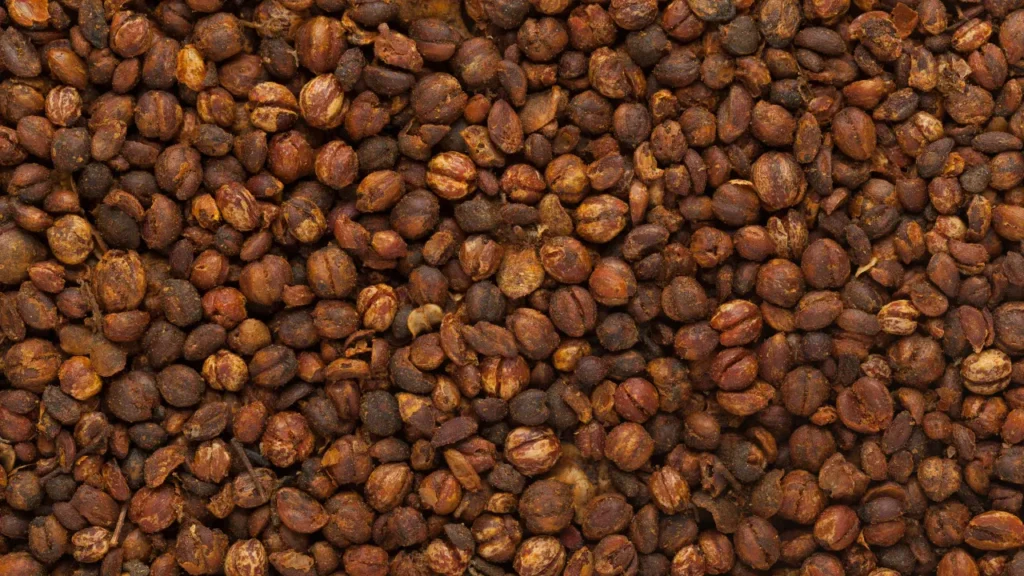The intelligence tree, Celastrus paniculatus, is a woody climbing shrub native to India. It has been used for ages in traditional Ayurvedic medicine for its medicinal effects. The seeds, leaves, and stem bark of the plant are used to cure a variety of ailments, including rheumatism, fever, neurological disorders, and gastrointestinal difficulties. Celastrus paniculatus has recently attracted interest for its potential as a cognitive enhancer or nootropic. The purpose of this article is to provide an overview of celastrus paniculatus, its health advantages, appropriate dosage, side effects, potential substance interactions, and responsible use as a nootropic supplement.
You May Also Like:
Horbaach Lion’s Mane Mushroom Extract Reviews: A Leading Herbal Nootropic Product
Celastrus Paniculatus: Benefits, Dosage, Side Effects, Drug Interactions, And Other Important Information is an original (NootropicsPlanet) article.
Nature of Celastrus paniculatus
As a member of the celastraceae family, celastrus paniculatus includes a variety of bio-active substances such as alkaloids, triterpenoids, flavonoids, and sesquiterpenes. The plant’s seeds contain two distinct chemicals, celastrine and paniculatine, which have been shown to have potential cognitive-enhancing properties.
Health benefits of Celastrus Paniculatus
Celastrus paniculatus’ purported health advantages stem mostly from its ability to improve cognitive function. According to studies, the plant extract can increase memory, learning, and overall mental performance. Celastrus paniculatus seed extract increased both spatial and non-spatial working memory in rats, according to a 2012 study published in the Journal of Medicinal Food. Another 2014 study published in the International Journal of Pharma and Bio Sciences discovered that the plant extract increased rat memory retention.
Aside from cognitive benefits, celastrus paniculatus contains anti-inflammatory and antioxidant effects. Compounds in the plant extract with antioxidant effects include quercetin, kaempferol, and rutin. Celastrus paniculatus seed extract demonstrated a strong anti-inflammatory impact in rats, according to a 2014 study published in the International Journal of Pharmacognosy and Phytochemical Research.

Chemistry of Celastrus paniculatus
Alkaloids, triterpenoids, flavonoids, and sesquiterpenes are among the bio-active substances found in celastrus paniculatus. The plant’s seeds are especially high in two distinct chemicals, celastrine and paniculatine, which have been linked to potential cognitive benefits.
Celastrine is a tetrahydroprotoberberine alkaloid with pharmacological effects that include anti-inflammatory, anti-diabetic, and anti-cancer properties. Paniculatine, on the other hand, is a sesquiterpene lactone with anti-inflammatory and antioxidant effects.
Physiological Properties of Celastrus paniculatus
The physiological properties of celastrus paniculatus is unknown. However, research suggests that the plant extract may improve cognitive performance through a variety of methods.
The regulation of acetylcholine levels in the brain is one possible method. Acetylcholine is a neurotransmitter that is essential for memory and learning. According to research, celastrus paniculatus can boost acetylcholine levels in the brain, hence boosting cognitive performance.
Another putative method of action is through dopaminergic system regulation. Dopamine is a neurotransmitter that influences motivation, reward, and attention. According to research, celastrus paniculatus can enhance dopamine levels in the brain, hence increasing cognitive function.

Optimal dosage of Celastrus Paniculatus
There is no standard recommended dosage of celastrus paniculatus as a nootropic supplement at the moment. However, most research done on rats has used dosages ranging from 100 to 300 mg/kg body weight. A safe and effective dosing range for humans has yet to be determined. To determine individual tolerance, it is critical to begin with a low dose and progressively increase it.
Side effects of Celastrus paniculatus
When ingested in moderation, celastrus paniculatus is usually regarded as harmless. However, some potential side effects such as nausea, vomiting, and headache have been recorded. These side effects are usually minor and go away on their own. Before beginning celastrus paniculatus, as with any supplement, see a healthcare practitioner to ensure that it is safe for you to use.

Potential substance interactions with Celastrus Paniculatus
There is presently little information known about celastrus paniculatus’s potential drug interactions. It should be noted, however, that the plant extract can interfere with some drugs or supplements. To avoid any potential bad reactions, anyone taking prescription drugs or other supplements should see a healthcare expert before using celastrus paniculatus.
Responsible use of Celastrus Paniculatus
To avoid potential side effects, use celastrus paniculatus responsibly, as with any supplement. To determine individual tolerance, start with a low dose and progressively increase it. Individuals should also avoid drinking large amounts of the plant extract or using it for extended periods of time without rest. It is also critical to confirm that the celastrus paniculatus supplement comes from a trustworthy source and that the product has undergone quality testing.
Furthermore, celastrus paniculatus should not be used exclusively as a cognitive enhancer. A healthy lifestyle that includes regular exercise, a well-balanced diet, and enough sleep is critical for good cognitive performance.
Celastrus Paniculatus:
Conclusion
Celastrus paniculatus, also known as the intellect tree, is a woody fruit-bearing vine. Its seeds, used in Ayurvedic medicine, have garnered attention for their potential cognitive benefits and intestinal health promotion. These seeds can be ingested directly or transformed into an oil, sometimes employed during massage. The oil not only alleviates skin inflammation but also exerts a mild sedative effect. While animal studies suggest that celastrus paniculatus can protect the brain and enhance cognition, single-dose supplementation appears ineffective.
However, over a two-week period, its effects become more pronounced. Although promising, further research is needed before specifically recommending celastrus paniculatus for supplementation. Traditionally referred to as “the elixir of life,” this herb remains an intriguing avenue for neurological and intestinal health support.

References:
- Effects of adaptogens on the central nervous system and the molecular mechanisms associated with their stress-protective activity. Link: https://www.mdpi.com/1424-8247/3/1/188
- Indian Medicinal Plants: An Illustrated Dictionary. Springer Nature. Link: https://link.springer.com/referencework/10.1007/978-0-387-70638-2?page=8
- Ahmad, W., Jantan, I., & Bukhari, S. N. A. (2017). Celastrus paniculatus: A review on its phytochemical and pharmacological importance. Link: https://www.sciencedirect.com/science/article/pii/S0378874117322831
- . Celastrus paniculatus and its bioactive constituents: An overview. Link: https://www.researchgate.net/publication/255674847_Celastrus_paniculatus_and_its_bioactive_constituents_An_overview
Important Note: The information contained in this article is for general informational purposes only, and should not be construed as health or medical advice, nor is it intended to diagnose, prevent, treat, or cure any disease or health condition. Before embarking on any diet, fitness regimen, or program of nutritional supplementation, it is advisable to consult your healthcare professional in order to determine its safety and probable efficacy in terms of your individual state of health.
Regarding Nutritional Supplements Or Other Non-Prescription Health Products: If any nutritional supplements or other non-prescription health products are mentioned in the foregoing article, any claims or statements made about them have not been evaluated by the U.S. Food and Drug Administration, and such nutritional supplements or other health products are not intended to diagnose, treat, cure, or prevent any disease.


